Petition calls on snacks firm to end use of plastic in the 11 million packets a day produced at Leicester factory
Get Started for FREE
Sign up with Facebook Sign up with X
I don't have a Facebook or a X account

 Your new post is loading... Your new post is loading...
 Your new post is loading... Your new post is loading...
Starbucks is to charge customers a 5p levy for paper cups across all 950 stores in Britain, in a bid to reduce single-use paper and plastic waste.
Graham Watson's insight:
Is this an example of coffee retailers trying to head of government intervention by engaging in a spot of self-regulation? Or is it part of their profit-maximizing behaviour in a competitive market?
Either way, it must be a serious issue if Starbucks are now starting to charge customers for paper cups.
Cadbury, Chewits and Squashies sweets had adverts banned which may have been seen by children.
Graham Watson's insight:
New ASA rules have been enforced for the first time, in relation to advertising 'junk food' with a number of confectioners having ads banned because they could be seen by children.
Is this a good thing, however? What is the cost of monitoring this sort of advertising on social media, such as Facebook, and what are the supposed benefits. In short, is there a net efficiency gain from this form of intervention.
A university campus has cut the use of disposable cups with a simple change.
Graham Watson's insight:
One for the behavioural economics file, with the University of Winchester - my former manor - having changed their pricing policy to encourage the use of disposable cups.
Instead of offering a discount for bringing a disposable cup, they've lowered the price of hot drinks and introduced a fine for consumers who fail to bring a disposable cup - and this has had a dramatic effect on consumer behaviour.
Production and disposal of paper bags has greater climate impact than plastic, says Environment Agency
Graham Watson's insight:
Excellent, excellent article. This just looks at a supposedly environmentally-friendly policy, replacing plastic bags with paper bags.
However, the move seems to make little environmental sense - replacing one environmental challenge with another - and the net effect is likely to be adverse, unless the paper bags are used at least four times.
Checkout offer bans and TV advertising watershed are key steps to tackle health crisis
Graham Watson's insight:
It strikes me that there's been a big push to tackle 'obesity' this year - however, I worry that it's been a bit underhand and that the haste and the range of measures being considered smacks of 'bad economics', and might be likely to result in government failure.
Either way, it's clear that poor dietary habits generate negative externalities, but in itself that doesn't justify intervention, as any good economist should know.
Government faces criticism from its own advisors over failure to mention emissions targets as campaigners enter second week of hunger strike
Graham Watson's insight:
More pressure on the government to rethink the third runway proposal for Heathrow - environmentalists are of the view that any decision to proceed jeopardises climate change commitments.
Electric motorbikes are fast, clean, and quiet - could they eclipse electric cars?
Graham Watson's insight:
Electric cars? In this case, it's electric bikes - whose development appears to be eclipsing that of the car. This article looks at their development - the major sticking point at the moment is the issue of charging.
Public bodies are turning their backs on disposable coffee cups over environmental concerns.
Graham Watson's insight:
The recent pressure on coffee companies to move away from disposable cups has meant that that there's now increased demand for reusable cups. However, a leading reusable cup manufacturer has an interesting perspective on this, arguing that the prospect of a ban on the use of disposable cups wouldn't be needed if the infrastructure was in place to make recycling of these cups easier.
Most farmers make a loss and rely on Brussels subsidies. Before it’s too late we must decide the kind of meat we want to eat, says Felicity Lawrence, author of Not on the Label
Graham Watson's insight:
Just a depressing read: I leave it at that.
Even for the pessimistic Guardian view of farming and its effect on the environment, this doesn't make for an uplifting read....
Could the French capital provide a template for cutting pollution in other cities?
Graham Watson's insight:
The BBC looks at the ways in which Paris has started to crackdown on vehicle emissions in a more stringent fashion than London. It makes for interesting reading: should our policies be more pro-active.
An industry expert says petrol and diesel cars should be banned by 2030 or 2035, not 2040.
Graham Watson's insight:
An interesting story today, arguing that the government's clean air targets for cars are actually too lax, and compared with some nations initiatives, this would seem to be the case.
However, in Economics we should all be aware of the fact that incremental change often reduces the risk of government failure and that empirically we should probably talk rather more about second mover advantage rather than first.
UK bookmakers could suffer a hit of more than £200m to annual profits after the Government confirmed it would slash the maximum stakes on ‘crack cocaine’ betting machines to £2 from £100 now.
Graham Watson's insight:
It seems that there's a microeconomic IA about press coverage out there too. As far as the Telegraph is concerned, the biggest story regarding the maximum stakes for FOBTs is the effect on UK bookmakers.
Is this the most significant effect of the change? It assumes that those FOBT gamblers aren't going to gamble in another form - such as internet betting, for example. Dynamic v static efficiency, anyone? |
Consumer group Which? says up to a third of plastic packaging in supermarkets is not easily recyclable.
Graham Watson's insight:
Another little 'green' story - Which? has looked at the recyclability to supermarket packaging and found that a third of it isn't easily recyclable, with discounter Lidl found to be the worst offender.
The consumer group are keen to make recycling labels compulsory. But is this good economics? Some thinking for you...
Discarded phones and televisions are a rich source of metals, and e-waste miners see money-making potential.
Graham Watson's insight:
An interesting peak at -emining - recycling metals from electrical goods - and how it might be made profitable in the very near future.
Thailand has been swamped by waste from the west after Chinese ban on imports
Graham Watson's insight:
Unusual story this, with the waste from electronic items such as computers increasingly ending up in other parts of South-East and East Asia, rather than China, after the latter banned waste imports.
This highlights the negative externalities associated with waste, and the fact that those externalities are generated by the consumers of these products whose relative affluence allows them to impose the external cost on the developing world, where this can adversely affect developmental outcomes and is also patently unfair.
As English cities prepare to launch clean air zones, is there evidence that they reduce pollution?
Graham Watson's insight:
The excellent Reality Check series takes a look at whether clean air zones work, highlighting the difference between the rhetoric of politicians and the reality of policymaking.
Corporate power could still derail the government’s plans to clamp down on junk food, writes the Guardian’s health editor, Sarah Boseley
Graham Watson's insight:
I'm going to state at the outset - there are clearly negative externalities associated with obesity. However, the first paragraph here is that of a zealot, and there's little in the way of good economics here.
I'm not sure that all of the policy measures mentioned here by Sarah Boseley reperesent a "sound plan". A plan, yes. Sound, though, is somewhat more debatable.
Calls by joint inquiry to bring forward UK car sales ban have been resisted by government
Graham Watson's insight:
Guaridan to the max: the Transport Select Committee believes that the government is failing to meet its commitments to tackling air pollution. 'Twas ever thus, I fear.
Coal rebound and slowing efficiency gains in 2017 suggest Paris goals may be missed, says oil firm
Graham Watson's insight:
It might seem unusual, as if BP are cutting their nose off to spite their face, but in actual fact it's profit maximising.
BP have just produced a report that suggests that the resurgence of fossil fuels in 2017 imperils the world's ability to meet the Paris Climate Change goals. But why would an oil company worry about this?
The fact is that BP have invested massively in alternative energy sources, and so any move in this direction would benefit all of us.
A “latte levy” of 25p on disposable coffee cups, being proposed by MPs, would cost up to 11,000 jobs in the UK, according to a study commissioned by manufacturers.
Graham Watson's insight:
Interesting, if predictable response from the coffee industry to the so-called 'latte levy' and a lovely example of (a) static v dynamic economics and (b) the power of vested interests.
In the former case, the 11,000 jobs seems to take little account of other jobs both in the sector and elsewhere - it's unlikely that consumer tastes will change so precipitously.
In the latter - "to a study commissioned by manufacturers" - I leave you to draw your own conclusions.
Uzbekistan has an ambitious plan to stop widespread health problems that developed when the Aral Sea disappeared.
Graham Watson's insight:
Perhaps one of the largest environmental disasters of the second half of the 20th century is the desertification of the Aral Sea. This BBC clip looks at the effects of this on Uzbekhistan. It is disturbing, but symptomatic of the former Soviet Union's mismanagement of its resources.
Spending on e-cigarettes is increasing. The BBC looks at what's behind the rise.
Graham Watson's insight:
An interesting adjunct to the market for cigarettes is the market for vaping - and this article details the rise of e-cigarettes as a substitute for conventional tobacco.
Only yoghurts, cereals and sweet spreads hit the 5% sugar reduction target, Public Health England says
Graham Watson's insight:
Depending upon your point of view, this is either disappointing news, or the over-reaction of health-fascists and interventionists. It's also a lovely example of one of the drawbacks of self-regulation.
Undoubtedly, too much sugar is a bad thing, and obesity generates negative externalities, but what is the solution?
Ministers have reduced maximum stakes from £100 to £2 but for some the change has come too late
Graham Watson's insight:
A very personal account of Newham high street, and the life of a problem gambler from a Gambian immigrant, Sulayman Keita, who became addicted to them.
The extent of his addiction is made clear from the article. |



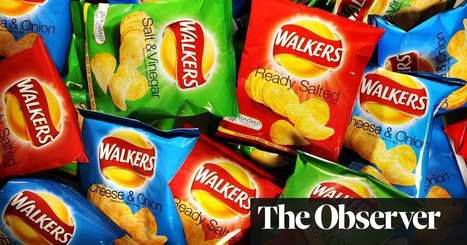




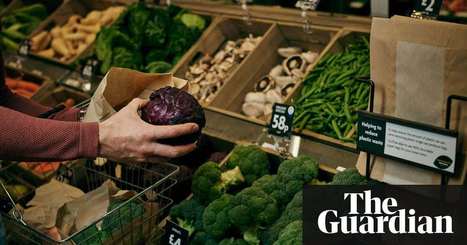







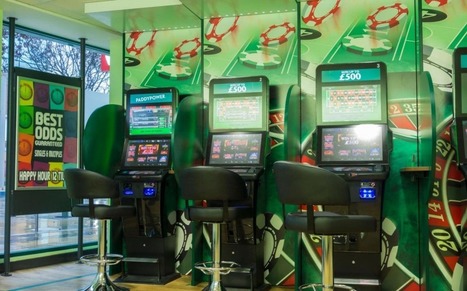

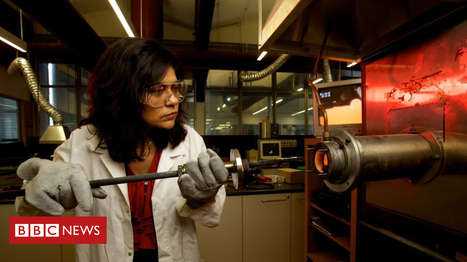
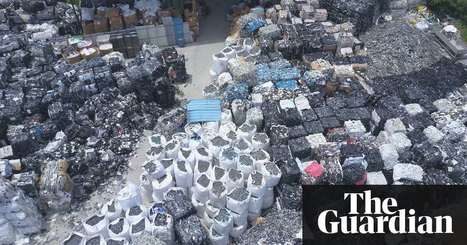
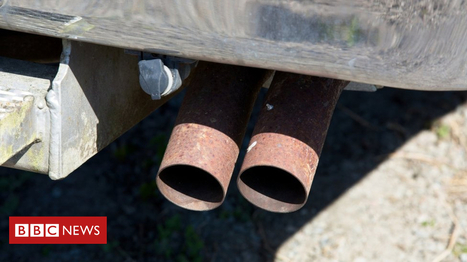


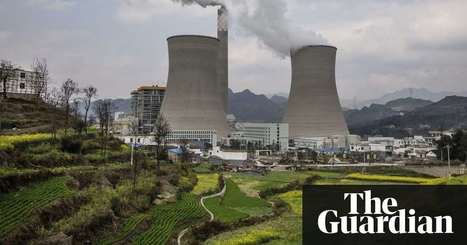










Who'd have thought it - Gary Lineker, the friendly face of a villainous corporation?
But that's what happened apparently - Walkers crisp packets are non-recyclable, and consumer groups want to know why, given that they technology exists to make recyclable packets.